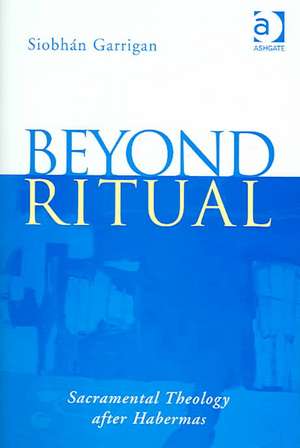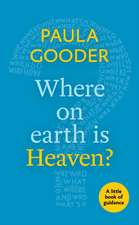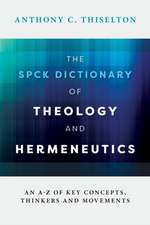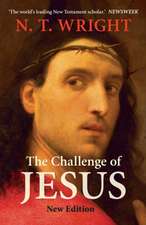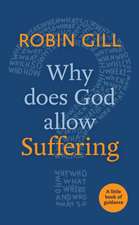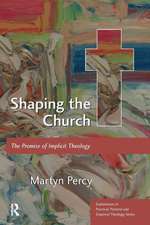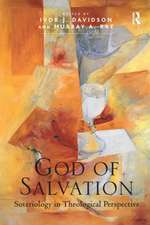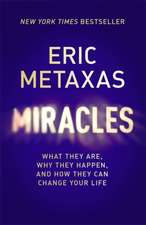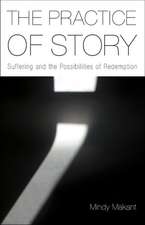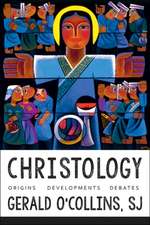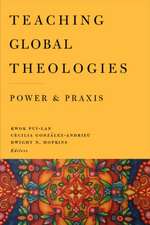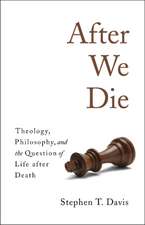Beyond Ritual: Sacramental Theology after Habermas
Autor Siobhán Garriganen Limba Engleză Hardback – 28 mai 2004
| Toate formatele și edițiile | Preț | Express |
|---|---|---|
| Paperback (1) | 338.33 lei 6-8 săpt. | |
| Taylor & Francis – 11 noi 2016 | 338.33 lei 6-8 săpt. | |
| Hardback (1) | 737.19 lei 6-8 săpt. | |
| Taylor & Francis – 28 mai 2004 | 737.19 lei 6-8 săpt. |
Preț: 737.19 lei
Preț vechi: 990.20 lei
-26% Nou
Puncte Express: 1106
Preț estimativ în valută:
141.06€ • 147.67$ • 116.72£
141.06€ • 147.67$ • 116.72£
Carte tipărită la comandă
Livrare economică 05-19 aprilie
Preluare comenzi: 021 569.72.76
Specificații
ISBN-13: 9780754636113
ISBN-10: 0754636119
Pagini: 248
Dimensiuni: 156 x 234 mm
Greutate: 0.5 kg
Ediția:1
Editura: Taylor & Francis
Colecția Routledge
Locul publicării:Oxford, United Kingdom
ISBN-10: 0754636119
Pagini: 248
Dimensiuni: 156 x 234 mm
Greutate: 0.5 kg
Ediția:1
Editura: Taylor & Francis
Colecția Routledge
Locul publicării:Oxford, United Kingdom
Cuprins
Contents: Introduction; Part I: A crisis of institutions; Questioning rituality. Part II: Developing a theological model of communicative action; A liturgical theology of communicative action. Part III: The theology of marginal Christian communities; Conclusions. Appendix; Bibliography; Index.
Notă biografică
Siobhán Garrigan was Assistant Professor of Liturgical Studies and Assistant Dean for Chapel, Yale University Divinity School and Institute of Sacred Music, USA. Now is Senior Lecturer in Theology at the University of Exeter, UK.
Recenzii
'Siobhan Garrigan uses the philosophical categories of Professor Habermas to explore the interpersonal dynamics of the eucharist. She then uses these new analytical tools to observe what actually happens in specific masses and a feminist liturgy. She thus opens many new possibilities for the academic exploration of the complexities of Christian worship.' James F. White, Bard Thompson Professor of Liturgical Studies, Drew University, USA 'After rehearsing some of the main conclusions of recent liturgical theology and ritual studies, Siobhan Garrigan strikes off on an imaginative path of her own. Convinced that liturgy is social practice rather than words on paper, with dynamics of its own rather than merely the application of theology, she analyzes the actual liturgical celebrations of some actual congregations in present-day Ireland. What make her conclusions especially interesting are that she creatively employs certain elements of Habermas' theory of communicative action, and among the liturgical celebrations she analyzes are those of some marginal groups. Altogether a creative and provocative contribution to our understanding of what does take place -- and of what should take place -- when the Christian liturgy is celebrated.' Nicholas P. Wolterstorff, Noah Porter Professor of Philosophical Theology, Yale University Divinity School, USA 'Garrigan's careful analyses, her impressive grasp of the literature, and her lucid writing style make this book a must-read for anyone interested in ritual and sacrament.' www.arsdisputandi.org 'There are some splendid things in this book. The concise, sympathetic and yet critical survey of the current state of ritual studies, found in chapter two, is a small gem.' Worship ’Siobhán Garrigan has produced a significant book and a positive contribution to liturgical theology...It is also very significant as a piece of practical theology that demonstrates a use of observational technique and linguistic interactional anal
Descriere
In Beyond Ritual, Siobhan Garrigan uses Habermas's theory of communicative action to suggest two things: first, a method by which theology can access the ritual symbols by which faith is formed; and secondly a metaphor of intersubjectivity with which theology can propose an interpretative, rather than an instrumental, understanding of sacramentality -- and thus of God. Through fieldwork studies of both 'marginal' and 'mainstream' Christian Eucharists, Garrigan develops the conversation between Habermas's philosophy and Christian theology, showing how ritual interactions form -- and challenge -- our very idea of God.Â
